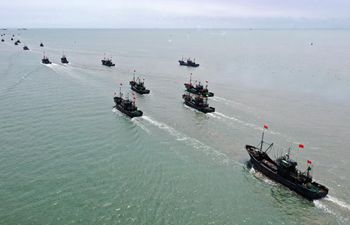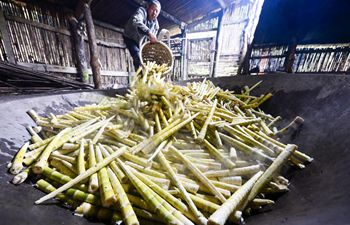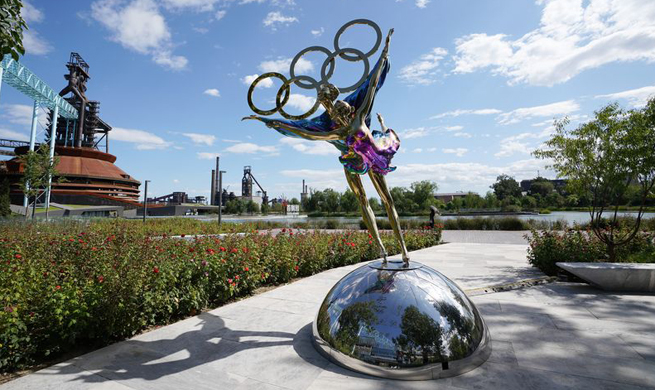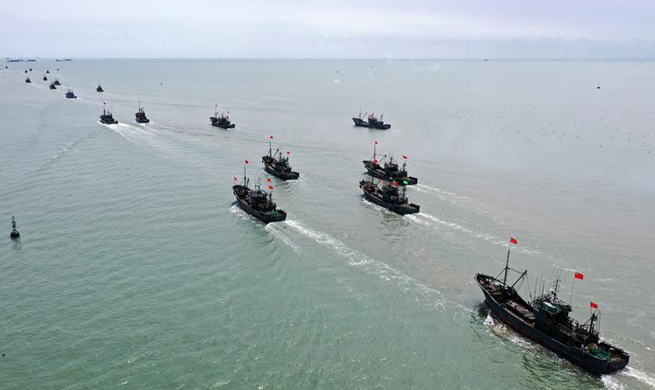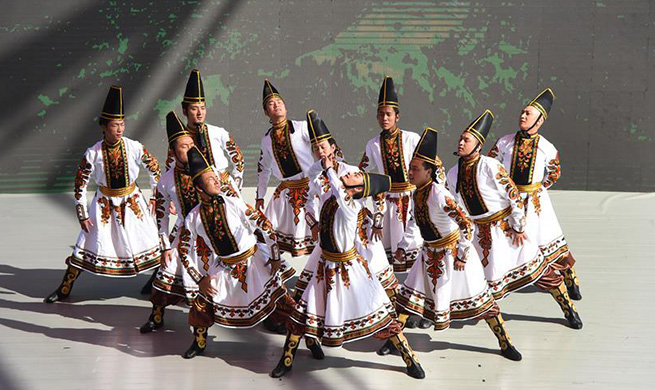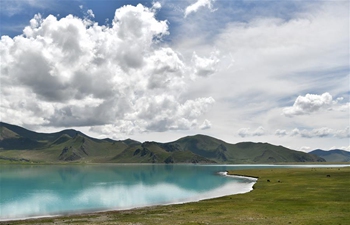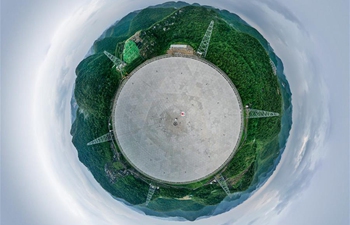BERLIN, Sept. 2 (Xinhua) -- Despite the major electoral successes of the far-right Alternative for Germany (AfD) in the state elections in Brandenburg and Saxony, the conservative CDU continued to rule out cooperation with the AfD party on Monday.
When asked whether the Christian Democrats (CDU) would maintain their separation from the AfD, party leader Annegret Kramp-Karrenbauer told German broadcaster ARD "yes, we can".
The committees of the CDU had determined this and Saxony's head of government Michael Kretschmer was also behind it, according to Kramp-Karrenbauer.
Saxony's Minister President Michael Kretschmer emphasized that there would be no cooperation with the AfD and that he was "firmly convinced that many from the non-voter camp and from other parties have also elected the CDU precisely for this reason".
On Sunday, the AfD became second strongest political force in the federal states of Saxony, where it almost tripled its result to 27.5 percent, and Brandenburg, where the party almost doubled its voter share to 23.5 percent.
CDU party leader Kramp-Karrenbauer noted that her party bore a share of the responsibility for the significant losses incurred in both federal states, as "we did not overcome some hurdles together, including myself personally, as elegantly as we should have".
AfD leader Alexander Gauland told German broadcaster ARD that he expected calls for talks with his party to become "loud" after the state elections in Saxony.
According to Gauland, the CDU's negotiations with the Greens in particular were likely to be difficult given major differences in content and "then the question will indeed arise, is it not better to talk to the AfD?"
Gauland also noted that "we are now the citizens' opposition party in Brandenburg. The CDU is practically marginalized".
CDU vice-chairman Thomas Strobl emphasized that his party needed work to ensure that "this right-wing margin in Germany disappears, as do the left-wing extremists".
The CDU needed to "say clearly and unambiguously that there is nothing with the people of the AfD, no coalition, no cooperation, no collaboration," Strobl told Deutsche Welle.
Minister President for Schleswig-Holstein, Daniel Guenther (CDU), called for course corrections by his party's leadership, criticizing that "there was certainly no tailwind from Berlin, so the results of Sunday are also an alarm signal".
"It will now be important that we also set clear points in terms of content. If that succeeds, the criticism of those responsible will also be dispelled," Guenther told the German newspaper Welt.
In Saxony, the CDU, which has been in power since 1990, slipped to a new low, winning 32.1 percent of the vote, according to the preliminary official final result, compared to 39.4 percent during the last federal state elections in 2014.
The AfD achieved its best state election result ever and although it was not able to overtake the CDU, the far-right party did replace the Left Party (Die Linke) as the second strongest force in Saxony.
The German Social Democrats (SPD) fell to 7.7 percent of the vote compared to 12.4 percent in 2014, marking the worst state election result in the party's history.
The Green Party increased its share of the vote to 8.6 percent while the Left gained 10.4 percent, down from 18.9 percent in 2014.
The provisional SPD leader Manuela Schwesig noted that "what we need in east Germany, all Minister Presidents, regardless of which party is that the federal government listens more closely to us. Because we know where the pressure is locally".
In Brandenburg, the Social Democrats received 26.2 percent of the votes, while the CDU, traditionally weak in Brandenburg, fell to its worst state result with 15.6 percent.
The Left Party, which had previously been part of the government in Brandenburg, also collapsed and stood at 10.7 percent compared to 18.6 percent during the previous elections in 2014.
With 10.8 percent, the Green Party not only achieved their best result in Brandenburg but also in an eastern German state.
